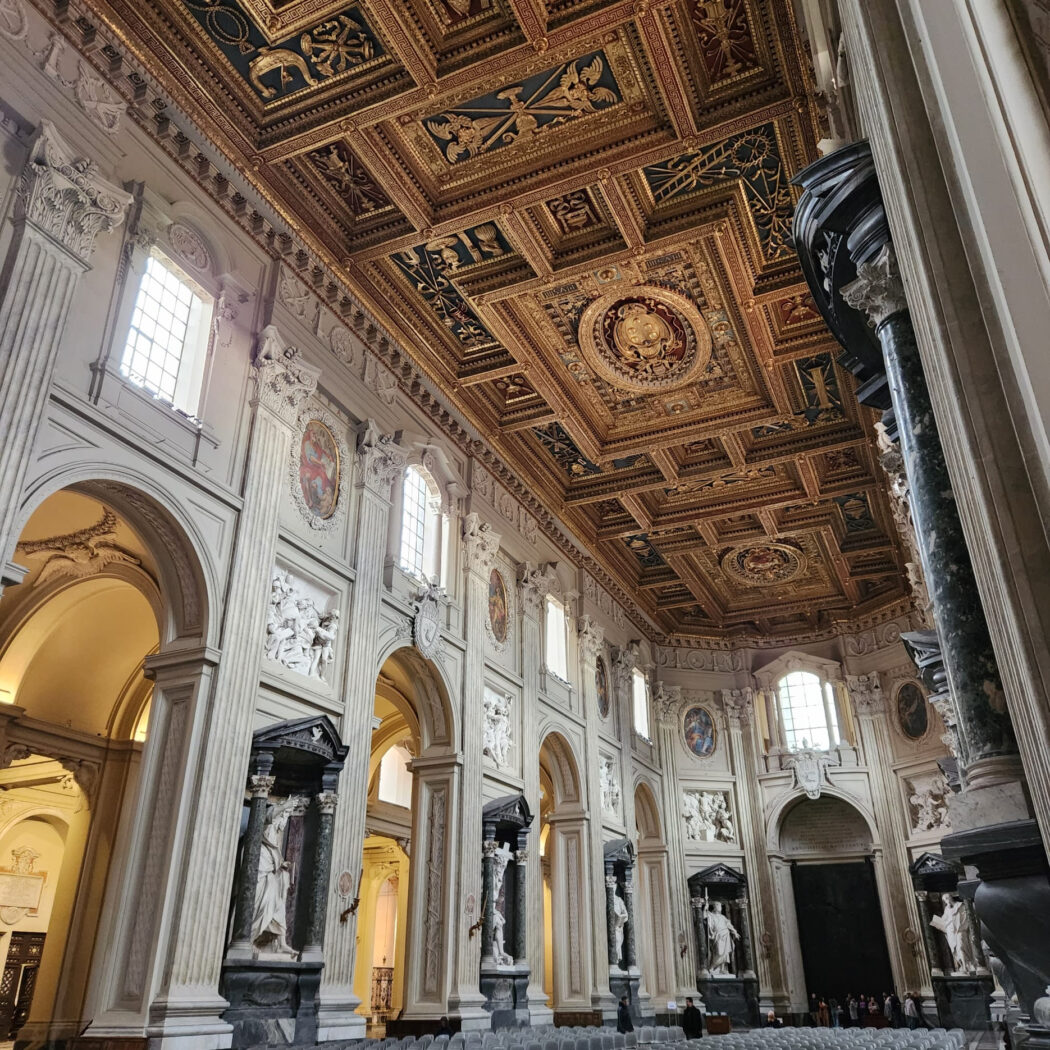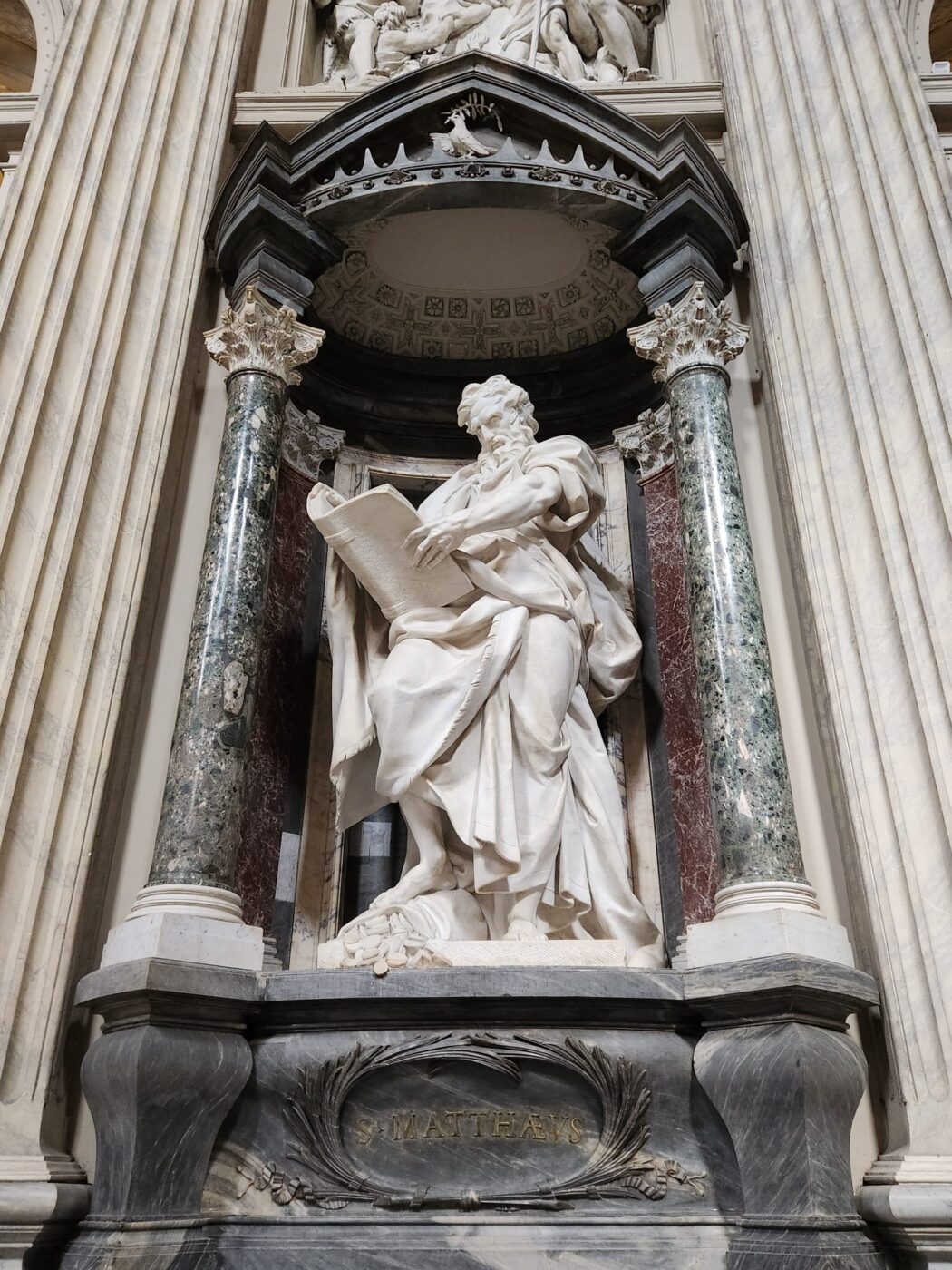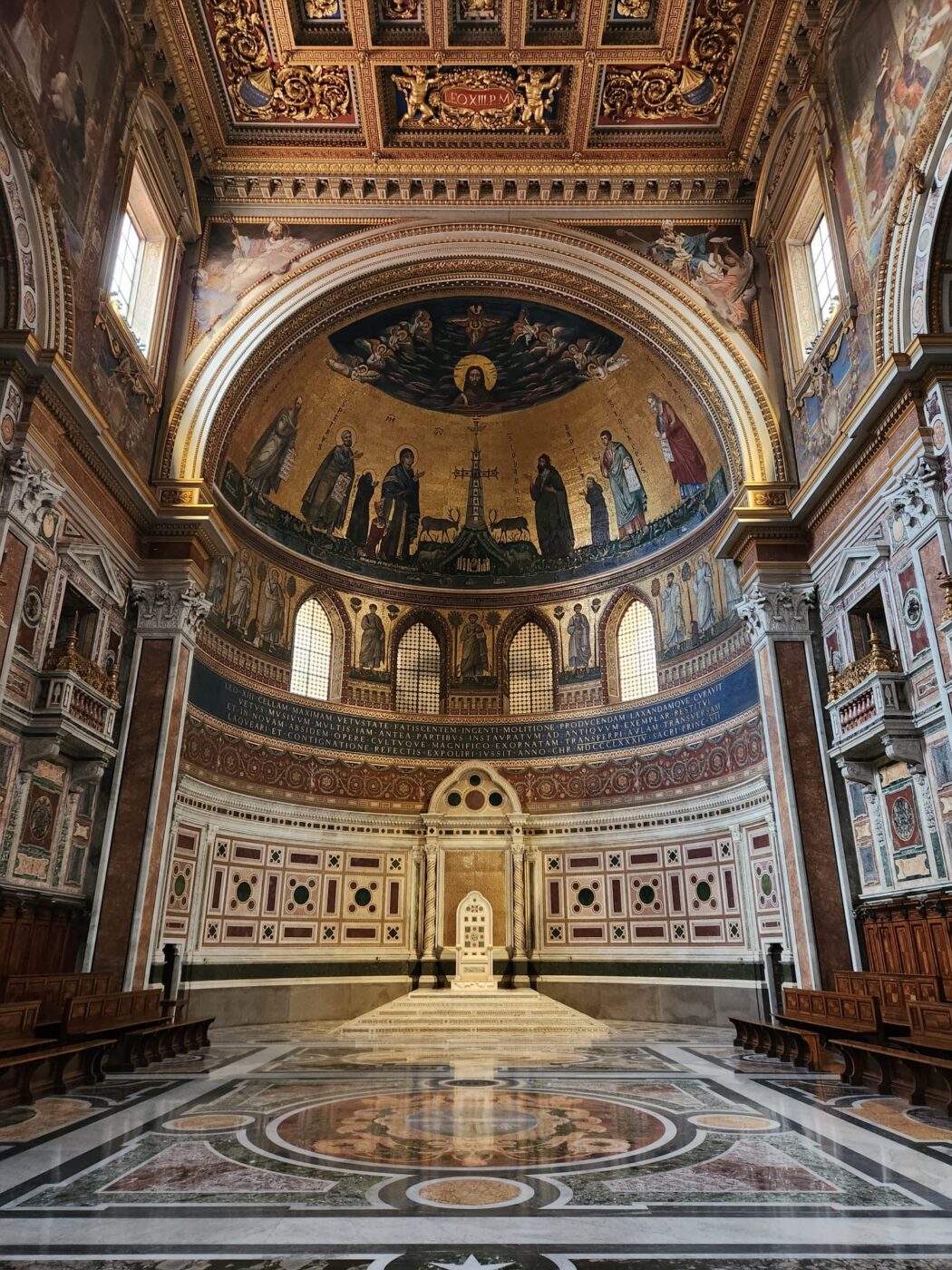
The Feast of the Dedication of the Lateran Basilica is a unique feast, which celebrates not a person, but a physical building. Through following the readings of this special day, we recognise that we too play a part in the building of the Church, becoming spiritual building blocks for the Kingdom of God.
The construction of the Lateran Basilica marked a turning point in the history of the Western Church. Before Constantine, the Church in the Roman world was severely persecuted and had to operate in discrete communities underground. In the year 313 AD, Constantine granted full liberty to Christians in the Roman Empire. During this transition, Constantine gifted the land originally from the Laterani family to the Christians, who built a church. This church was later consecrated by Pope Sylvester I in 324 AD and became the primary residence of the Pope, and the cathedral of Rome.
Today the Catholic Church acknowledges the Basilica as the highest ranked church in the world (that’s right, even higher than St Peter’s Basilica!) and is considered to be the ‘mother church’ of all churches in the world. Today we reflect on our own parish churches, humble as some may be, and their role as part of a wider body of churches worldwide, all pointing towards Rome.

Throughout the centuries, this church suffered many things, ranging from the sacking of the Vandals in the 5th Century, an earthquake which almost destroyed it in 896 AD, as well as long periods of decay. Despite these occurrences, the church still stands today after numerous reconstructions, the latest and most significant being the baroque reconstruction in the 17th Century.

Beyond its impressive historical legacy, the Lateran Basilica holds some important truths for us today. It houses a relic of the wooden altar on which St Peter celebrated Mass, and we are reminded of Christ’s words to Peter in Matthew 18:16, in which he declared that “the gates of hell shall not prevail,” against the Church he would build on Peter. It can be easy to be discouraged upon looking at how the Church suffers today. Yet considering the Basilica’s history, and the precious relic it contains, we are comforted in the knowledge that, despite hardships, the Church still endures, and will continue to do so until Christ comes again.
Today’s feast also reminds us of another crucial element of our Christian lives. Inspired by our physical ‘temples’ and houses of prayer, we are called to become spiritual temples of God. In today’s Office of Readings (prayed as part of the Liturgy of the Hours), we are given insight into the realities of this. In the second reading, St Caesarius of Arles speaks of this feast day and says,
“My fellow Christians, do we wish to celebrate joyfully the birth of this temple? Then let us not destroy the living temples of God in ourselves by works of evil…Whenever we come to church, we must prepare our hearts to be as beautiful as we expect this church to be. Do you wish to find this basilica immaculately clean? Then do not soil your soul with the filth of sins. Do you wish this basilica to be full of light? God too wishes that your soul be not in darkness, but that the light of good works shine in us, so that he who dwells in the heavens will be glorified. Just as you enter this church building, so God wishes to enter into your soul, for he promised: I shall live in them, I shall walk through their heart.” (Read the Second Reading here)

When we were away from God, our bodies were vessels for destruction and sin. Now, as Catholics baptised into Christ, our bodies are now vessels for God’s glory. Our life is testament to God’s grace and the immutability of his message and his kingdom. The amazing survival of our churches, from the little parishes right up to the great Mother Church in Rome, also testifies to the power of God’s kingdom to continue to reign in our lands, communities, and hearts. God longs to dwell in us. By allowing him to do so, we become the hands and feet of Christ, continuing to bring the Kingdom of God to earth.